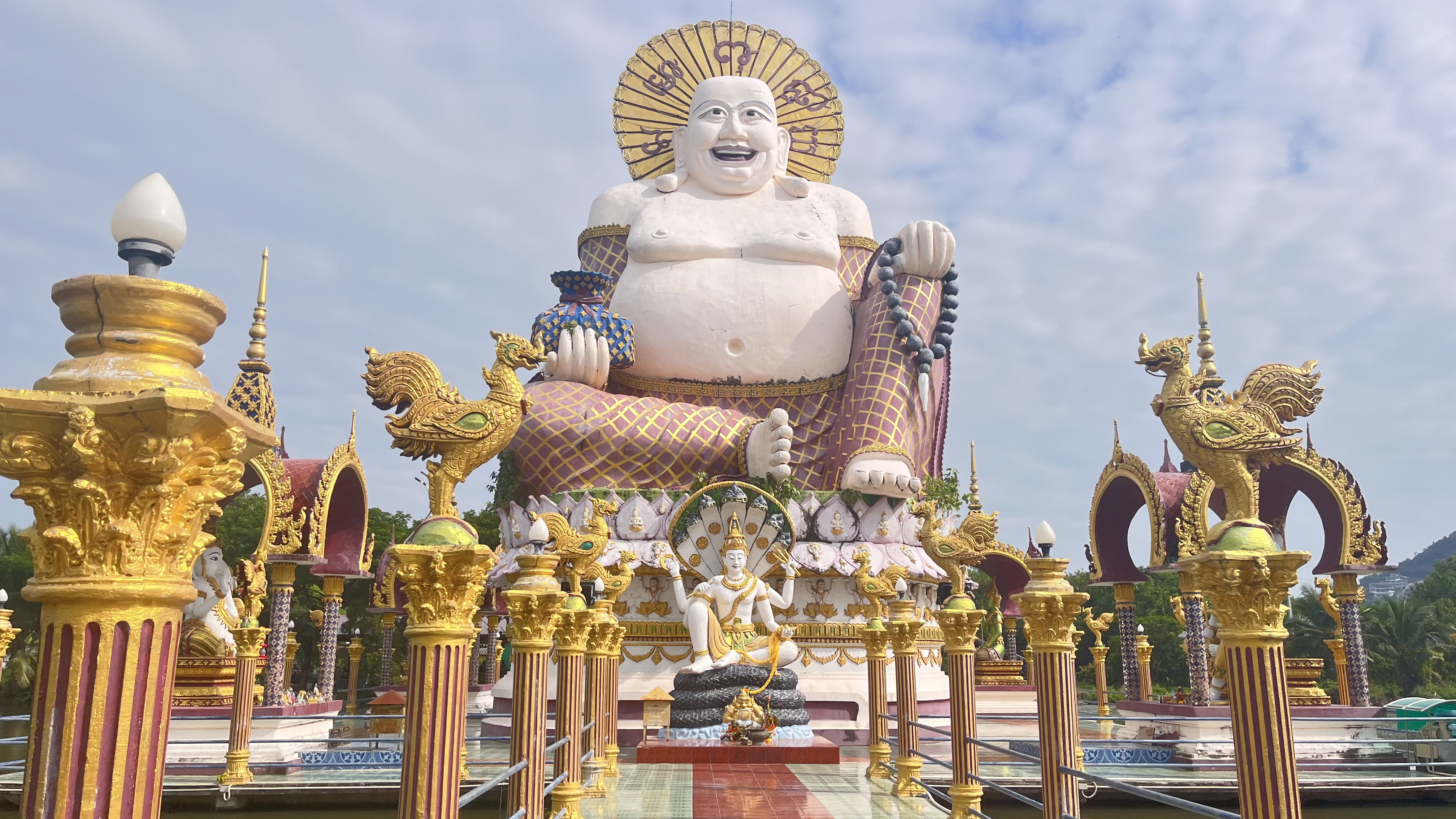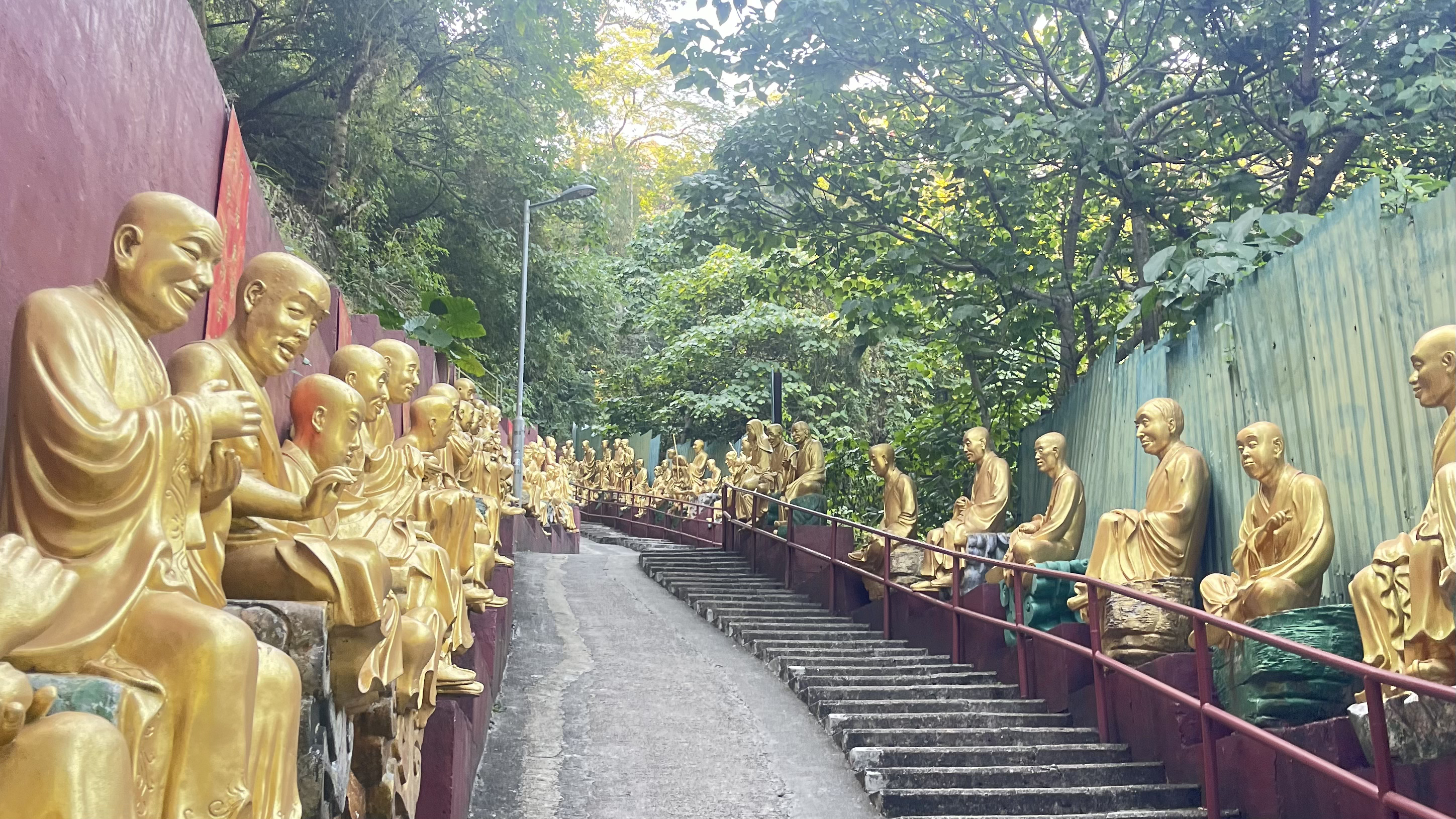Buddhism
Jan 19th 2025
Buddhism
Buddhism as a religion, culture, and mindset was one of the things I have always wanted to learn about. I generally do not prefer reading books about certain cultures because of oversimplification and stereotyping. I wanted to make my own experience and thoughts, which I could get some sense of during my week in Hong Kong & three weeks backpacking around Thailand, training Muay Thai, and getting to know locals. Here are few concepts I reflected on:
The Nature of Suffering
On one of Hong Kong's mountains, I once said "There will always be a new mountain to climb. Ongoing
satisfaction/happiness are very bad principles to pursue since if you think you are on the top the next path
is only down". My friend fully disagreed with me claiming that this would bring misery. He thought
that happiness and satisfaction are much more pursuable. In Buddhism, the idea of suffering—known as
dukkha—is fundamental to understanding life. This concept does not imply that life is itself entirely
negative; instead, it suggests that a subtle sense of dissatisfaction is always present. Even when we
experience joy or achieve success, there always remains an underlying feeling of incompleteness.
Dukkha made me reflect on the nature of desire and the fleeting quality of all experiences.
No matter how much pleasure or accomplishment we attain, the satisfaction is temporary.
It suggests that the pleasure we get from anything is temporary, and no matter how much we achieve,
there's always something left unfulfilled. This isn't meant to be depressing—it's more of an invitation to
see life honestly. Recognizing this can help us understand our constant search for lasting satisfaction and
maybe even appreciate the fleeting nature of our experiences a bit more.
Impermanence
"The Only Constant in Life Is Change."- Heraclitus.

Wat Plai Laem, Thailand
Closely related to the idea of suffering is the belief in impermanence (anicca). Buddhism teaches that nothing lasts forever—whether it's our feelings, relationships, or even the things we own. This idea might initially feel a bit unsettling because it challenges our natural instinct to hold on to what we cherish. But instead of causing despair, it offers a new way of seeing the world.
Impermanence nudges us to ask about what truly matters. Is it the fleeting pleasure of a moment, or something more lasting like the wisdom we gain
from accepting change?
By understanding that everything is temporary, we can learn to appreciate the present without the constant fear of loss.
This mindset encourages to live more fully in each moment, enjoying what we have now instead of worrying about what might end. In this way,
impermanence becomes not just a reminder of life's transient nature, but also an invitation to embrace life with a little bit more openness.
No-Self
In Buddhism, the idea of no-self, or (anatman), challenges the way we normally think about who we are. We usually see ourselves as a fixed,
unchanging identity, but Buddhism teaches that what we call "self" is really just a mix of thoughts, feelings, and experiences that are always shifting.
There isn't a permanent "me" hidden inside; instead, our sense of identity is fluid and constantly evolving.
This idea can be a bit unsettling because it goes against our instinct to hold on to a stable sense of self.
We tend to cling to our past successes, failures, and even our personal quirks as if they define us forever. But when we start to see ourselves as a collection
of changing parts, we might begin to understand that holding too tightly to a static idea of who we are can just not lead to more suffering, but also inefficient
in a world that is also constantly evolving—the previous concept.
The Middle Way
Buddhism also emphasizes the Middle Way, which is a path between extremes. Instead of indulging in every pleasure or rejecting all worldly desires, the Middle Way encourages a balanced approach. This idea suggests that avoiding extremes in behavior and thought leads to a more stable and peaceful life. It's a practical philosophy that I find applicable in everyday decisions.
Interestingly,

Ten Thousand Buddhas Monastery, Hong Kong
Buddha never wanted to be worshiped—he was more about a way of thinking than being seen as a god. His whole thing was about understanding life, suffering, and finding balance, not devotion or rituals. But over time, people naturally started idealizing him, building statues, creating traditions, and even treating him like a deity. It's something humans tend to do—we like having something tangible to look up to.
"Do not dwell in the past, do not dream of the future, concentrate the mind on the present moment."- Buddha.